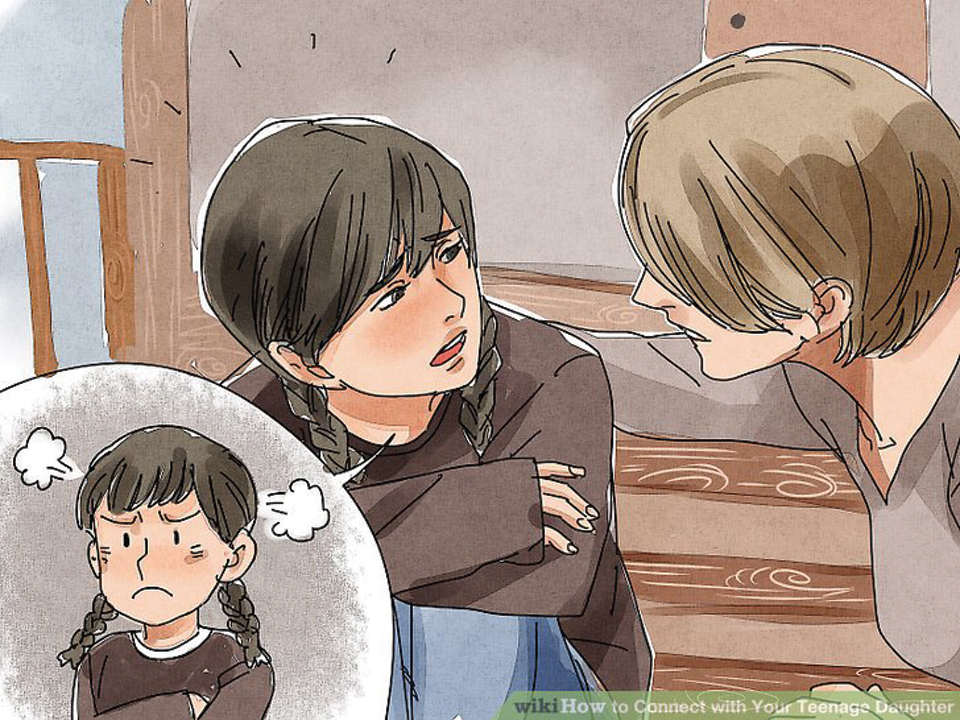
OR


Usha Pokharel
Usha Pokharel is an educationist and author of several children’s books.usha@pokharel.net
Preteens and teens are very much like us. They too have good days and bad days; we need to acknowledge that fact.
Communication is the magic to improving relationships, but communicating with teenagers is tricky. When it comes to starting a conversation with teenagers, many parents have no clue as to where to start. I know almost everyone feels uncomfortable sometimes initiating a conversation.
Especially with someone new, but parents know their children from childhood, so why the problem? Understandable. When their children were small, both parents and children were not bothered by whatever was happening. But when children start growing, both parents and children become self-conscious of the changes taking place, especially when the children reach preteen stage with onset of changes within them.
This change results in the child becoming more withdrawn, confused and the feeling of awkwardness sets in. Parents somehow manage to communicate with a preteen, but with each day passing, it becomes more and more difficult. The most difficult time for a parent is when their child becomes a teenager. Now is the time for parents to adjust to their children’s needs at a different level.
Even if you are busy make time for teenagers. Never give impression that other things are more important.
For a parent, this is likely to be the most painful part of their child’s growing up the process. Yes, even those children, who were previously happy, cheerful and willing to share their world with you, suddenly start to exclude parents from their life and even cut down dramatically on communication. All our sincere attempts at starting a conversation with them fail.
Talking with teens
Gradually for them all our attempts at the communication start to sound like an interrogation. With time they start loathing even the sight of their parents. Unknowingly we keep shooting question at them like an interrogator. Our questions are more of a conversation killer than starter. Most of us tend to use close-ended question like: ‘How was your day at school today?’ They utter a single word ‘fine’ as a response and that’s it. Now you are stuck as to how to start another conversation. One of the best conversation starters that I know of is talking about their topic of interest. At one time I was my children’s cartoon watching buddy.
While in the USA, every Saturday morning I wanted to sleep in a bit, but my children wanted to watch Saturday morning cartoons. So, they would wake me up and I moved to the living room sofa and napped while they watched cartoons. I put in a lot of effort to stay communicated with my children. I read all the storybooks they read. I asked them for recommendation. That provided me with a common ground to talk about. As they grew their interests shifted from cartoons to computer games and I adjusted accordingly. I learned to compromise and negotiate with my children.
I tried to be their friend as much as possible. I sat and watched them play computer games. I even helped them develop strategies to beat the boss in strategy games. I made a point to include my teenagers in all family conversations that they could contribute to. I acknowledged the fact that pretty soon they will be adults and so I treated them as adults. For me building a rapport with my children was very important. I wanted to make sure things worked out for them.
I am sure all parents act in the best interest of their children, but building a good rapport is very important. That’s because without feeling comfortable, they are not going to bare their soul to you. That’s one thing I know for sure. Now parents need to make an effort to adjust with their children. Parents also need to initiate conversations most of the time. Trying to rebuild that bond that seems to have lost somewhere with your preteen and teenagers in the process of growing up is extremely essential at this crucial stage of their life.
Face the facts
The first thing to do is to accept the fact that life has changed. We need to acknowledge that children are growing up with a lot of confusion regarding the different changes taking place both within themselves and their bodies. Along with this their perception about different things is also changing. We need to understand and not tease them for that.
Preteens and teens are very much like us. They too have good days and bad days. We need to respect that fact.
It’s about time to give them a little bit of space and privacy they are seeking. Accept that some days are not good for conversation. Parents can always ask if something is bothering them. If they reply in the negative giving them space and not prodding is the best option. Just make sure it does not happen too often.
When my children were growing up, their cousins were also there. There were more teenagers than adults in our home at one time. So dinnertime was the time they all talked about their day to each other. It made my life easier so far communication was concerned. It did not take much to coax them into talking. Food, school, teasing their older cousin sisters, were all part of the fun that sparked plenty of laughter and light banter while eating dinner. Dinnertime laughing frenzy was our family’s trait.
While all this was taking place I kept an eye for opportunity to praise them. I believe that a little praise goes a long way into improving a parent’s bond with their children. I learned that being positive spreads positivity around because it is entirely possible that there is a lot going on in your preteen/ teen’s head. It is always a good idea to look out for how we talk to them at all times, especially when they are not feeling upbeat. It is possible that something is bothering them. It might be trivial for us, but for them it is a big thing. We need to accept and respect that fact.
Sometimes they might not be in a mood to listen to you, but talk to you. In that case it might be a good idea to listen to them. Parenting is also about being a good listener. Even if you are busy, try and make time for your teenager. Never give the impression that there are other things more important to you than your children. It is necessary to be careful to not jump in and give advice unless asked for.
It is always a good idea to help them work through their problems and reach their own conclusion. I know this needs both time and patience, which currently parents do not have. Then again this is also the time parents need to be there for their children. Give them priority when they seek you, when they try to talk to you. Just remember that turning them away at a time when they need it the most will make it less likely for them to come to you again when they are troubled. Instead they will seek out other people and these people might necessarily not be desirable ones to guide your child. Thus they might fall into bad company.
Challenging times
Experience tells me that teenage years are the most challenging in one’s life. This is the period when a person’s experience constantly changes at all levels: physical, emotional as well as intellectual. A teenager is neither a child nor an adult. Thus the teenagers may not know how people expect them to behave, talk, think or lead their lives. That’s why; most teenagers feel very awkward and out of place when put in new surroundings and situations, especially when it comes to starting a conversation. It is our job to make them feel comfortable. Striking the first conversation is difficult after that life becomes slightly easier for both parties concerned. Talk about their favorite sports, their movie stars or anything that they are really interested in. That is not difficult, right parents?
Pokharel is an educationist and author of several children’s books usha@pokharel.net
You May Like This

Five teens arrested with 51.4 kg marijuana
BIRATNAGAR, Feb 18: Police made public five teenagers arrested with a huge quantity of marijuana worth millions of rupees in... Read More...

Digital distractions and mobile phone usage causing lack of sleep among teens
MONTREAL, Oct 30: Digital distractions, and a more classical one, talking on the phone, are linked to shorter sleeping time... Read More...

Nepali teen’s documentary to be screened at two international film festivals
KATHMANDU, June 15 : Fifteen-year-old Aditya Khadka’s documentary ‘Dhartiputra’ has been selected to be screened at two film festivals in... Read More...





Just In
- Construction of bailey bridge over Bheri river along Bheri corridor reaches final stage
- Taylor Swift releases ‘The Tortured Poets Department’
- India starts voting in the world’s largest election as Modi seeks a third term as prime minister
- EC seeks cooperation for free and fair by-election
- Bus carrying wedding procession attendees meets with accident in Sindhupalchowk claiming three live
- CPN (Unified Socialist) to hold its Central Committee meeting on May 10-11
- Over 16,000 paragliding flights conducted in one year in Pokhara
- MoPIT prepares draft of National Road Safety Act, proposes rescue within an hour of an accident














Leave A Comment